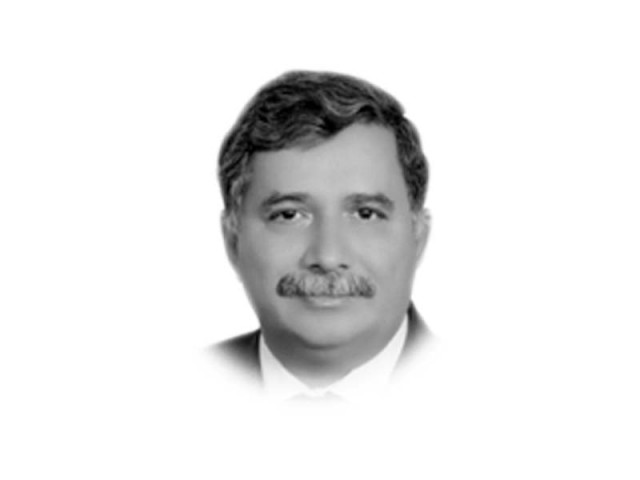Mantra of civil service reforms: empty promises
PTI had been most vociferous in its election campaign by according the highest priority to the change of system

All political parties have the same mantra which is ‘reforms, reforms and reforms’ whether it is in the civil service, agriculture, industrial, education, revenue or any other sphere of life. We have often heard the slogan ‘change the thana culture and patwar culture’. In this connection, PTI had been most vociferous in its election campaign by according the highest priority to the change of system through introducing massive reforms in the civil service to make it people-centric.
In his manifesto, Imran Khan proclaimed that his party’s movement was envisaged to fight for a just, equitable, egalitarian society, with rule of law, meritocracy, transparency and responsiveness as the guiding principles.
De-politicisation and strengthening of police, reformation of the criminal justice system, provision of speedy justice, civil service reforms, institutionalisation of e-governance practices in public administration, improved delivery services through legislative reforms (Right to Information, Right to Services), reformation of government procurement, and ensuring equal employment opportunity have been the lofty ideas.
The other guiding principles were the provision of necessary support to civil servants to perform and live a life of dignity and respect with checks and balances, the undertaking of appropriate career planning, the introduction of minimum tenures for senior civil servant posts such as federal and provincial secretaries, chief secretaries, inspector general (IG), and director inspector general (DIGs), etc; giving constitutional protection to public servants to perform their official functions and protect them against political interference; re-training the bureaucracy to meet new challenges; and setting up permanent public safety commissions at the federal and provincial level to reform the police system.
In this context, the Federal Minister for Education and Professional Training Shafqat Mahmood, as the head of the Cabinet committee on institutional reforms, outlined reforms in major areas: Civil Servants Promotion (BS-18 to BS-21) Rules, 2019; Civil Servants (Directory Retirement from Service) Rules, 2020; Efficiency and Discipline Rules, 2020; Revised Management Position Scales Policy, 2020; Rotation Policy, 2020; Rationalisation of cadre strength — induction in Pakistan Administrative Service (PAS).
An impassioned item-wise analysis of the ideals of the reforms revealed that we were still at square one. Neither the traditional inertia and status quo nor the hold of the elite cadre could be broken. Instead of bringing functional specialisation, and upward movement of experts at the policy level, a hybrid system consisting of the PAS and officers of the army, both serving and retired, has further been strengthened.
No space at the top posts exists for experts. Even posts of a purely technical nature are being occupied by officers of the administrative cadre, be it PAS or Provincial Management Service (PMS).
Posts such as Chairman Capital Development Authority, Lahore Development Authority, Peshawar Development Authority, Deputy Chairman Planning Commission, Science and Technology, Education, Health, National Disaster Management Authority, Pakistan Housing Authority and most of the public corporate authorities, textbook boards, boards of intermediate and secondary education, director-general prosecution to quote a few, are not only being occupied either by civil servants or army officers but also have been reserved for the administrative cadres of the federation and the provinces in appointment and promotion rules. Without a change in appointment and promotion rules and schedules and rules of businesses, neither can space be created for experts and professionals nor can dreams of change be realised. Thus, the professionals, despite having all the talent and expertise, remain deprived of promotions at the top. Resultantly, their initiative is restrained and their legitimate expectations of moving upward are being frustrated at the altar of the administrative cadres at both the federal and provincial levels.
Bureaucracy has different streams of officers. One of those is the Civil Superior Service (CSS) officers in Basic Pay Scale (BPS) 17 such as Customs, Inland Revenue Service, Audit and Accounts, Railways, postal, trade, and commerce, while others are recruited at BPS 14 and 16. This has created a permanent schism in the structure. It is one of the major causes, why civil service is not delivering. The same goes for the police.
The realisation of the set goals, whether in revenue or police, depends upon the efficiency of the inspectors, appraising officers, auditors, and police inspectors. But most reforms fall flat at that level. Even the best of the best from Harvard, Princeton, MIT, Yale, Oxford, and Cambridge or any other institution cannot bring a meaningful change within the present scheme of things. Mere tinkering here and there is not the solution to the problem.
Massive restructuring of the civil service (including the police) is required. The present system of induction of officers in BPS 17 through CSS should be done away with. The induction should be at the level of inspectors, auditors in revenue services, and assistant sub-inspector in the police. However, the examination for recruitment should be as tough as CSS. This will provide a chance to all and sundry within the organisation to grow and reach the top. Such an environment will induce motivation and eliminate the chances of corruption.
Apart from this, the tenure policy has been ruthlessly floating. Frequent changes of the Chief Secretaries, Inspector General of Police, secretaries, and other officers have remained the order of the day. The policy of serving in the hard and soft areas is nowhere to be seen. Officers having clout get postings of their choice, without serving in hard areas, which has alienated other officers. Officers of non-cadre posts having the blessings of the powerful are serving against cadre posts. Under the deputation policy, no officer can remain on deputation for more than three years, but who cares.
Despite tall claims of devolution of power, micromanagement is being done through the Prime Minister’s Portal, even at the police station and patwar level.
The upshot of the discussion is that amendments must be brought in rules of business and appointment and promotions per the ideals as enumerated in the manifesto and other proclamation of the PTI. Otherwise, they will remain empty promises.
Published in The Express Tribune, February 16th, 2022.
Like Opinion & Editorial on Facebook, follow @ETOpEd on Twitter to receive all updates on all our daily pieces.
















COMMENTS
Comments are moderated and generally will be posted if they are on-topic and not abusive.
For more information, please see our Comments FAQ